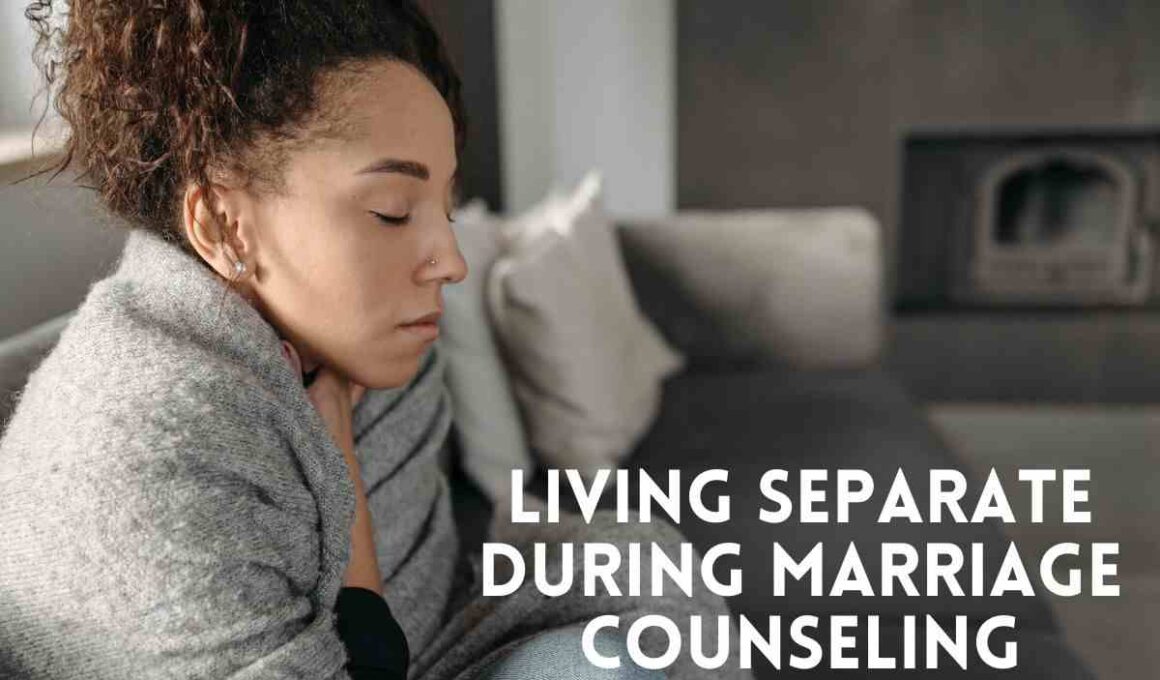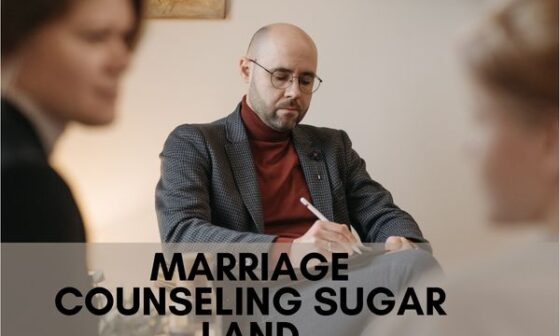Living separate during marriage counseling is a unique approach that some couples choose to take in order to navigate the challenges within their relationship. It involves physically separating while actively engaging in counseling sessions to address issues and work toward reconciliation. This article explores the concept of living separately during marriage counseling, highlighting the reasons, benefits, practical considerations, potential challenges, and strategies for a successful journey.
Living Separate During Marriage Counseling
Reasons for Living Separate during Marriage Counseling
- Need for personal space and reflection Living separately during marriage counseling allows individuals to have time and space to reflect on their own emotions, needs, and desires. It provides an opportunity to gain clarity about one’s own role in the relationship dynamics.
- Reduction of conflict and tension Physical separation can create a temporary respite from constant arguments and conflicts, allowing couples to focus on their emotional well-being and personal growth.
- Focusing on individual growth Living separately during marriage counseling encourages individuals to prioritize their personal development. It enables them to work on themselves, fostering self-awareness, and exploring areas for improvement.
Benefits of Living Separate during Marriage Counseling
A. Increased self-awareness and self-reflection Living apart allows individuals to engage in introspection and self-reflection, which are essential for personal growth. It provides an opportunity to identify patterns, triggers, and personal issues that may contribute to relationship difficulties.
B. Improved communication and conflict resolution skills Through counseling sessions, couples can learn effective communication and conflict resolution techniques. Living separately during this process allows individuals to practice these skills in a less emotionally charged environment.
C. Enhanced emotional well-being Physical separation can alleviate stress and anxiety associated with constant conflicts, providing individuals with a chance to focus on their emotional well-being. It allows for self-care and the pursuit of individual hobbies and interests.
Practical Considerations for Living Separate during Marriage Counseling
A. Establishing clear boundaries and expectations Clear boundaries should be set to ensure both individuals understand the terms of living separately during counseling. Discussions about financial responsibilities, co-parenting arrangements, and shared assets should be addressed.
B. Maintaining open and honest communication Effective communication remains crucial during this process. Regular check-ins, sharing emotions and experiences, and discussing progress in counseling sessions are vital to keeping the relationship and personal growth on track.
C. Seeking professional guidance and support Living separately during marriage counseling can be complex, and seeking professional guidance is essential. A skilled therapist can provide valuable insights, facilitate constructive conversations, and help navigate challenges that may arise.
Potential Challenges of Living Separate during Marriage Counseling
A. Feelings of loneliness and isolation Living apart can sometimes lead to feelings of loneliness and isolation, especially if there is a lack of emotional connection during the separation. It is important to find ways to address and overcome these challenges.
B. Difficulties in maintaining intimacy Physical separation can pose challenges to maintaining intimacy within the relationship. Couples must explore alternative ways to foster emotional and physical connection during this time.
C. Financial implications and logistical issues Living separately during marriage counseling can involve financial implications and logistical challenges, such as managing two households or arranging childcare. It is crucial to plan and address these practical aspects.
Strategies for Successful Living Separate during Marriage Counseling
A. Regular check-ins and reassessments Regularly assessing the progress of living separately during counseling is crucial. It allows couples to discuss any challenges, evaluate the effectiveness of the approach, and make necessary adjustments.
B. Engaging in joint activities and quality time together Despite the physical separation, it is important to engage in joint activities and spend quality time together. This can help maintain a sense of connection and reinforce the commitment to working on the relationship.
C. Utilizing technology for communication Modern technology offers numerous ways to stay connected even when physically apart. Utilizing video calls, instant messaging, and sharing personal experiences through digital platforms can bridge the gap between individuals.
Conclusion
Living separately during marriage counseling provides couples with a unique opportunity for individual growth, self-reflection, and relationship healing. While it may present challenges, when approached with clear communication, professional guidance, and a commitment to personal development, it can lead to stronger connections, improved communication skills, and a renewed sense of purpose within the relationship.
FAQs
- Is living separately during marriage counseling a common approach? Living separately during marriage counseling is not the conventional path, but it is an option that some couples choose based on their unique circumstances and needs.
- How long should couples consider living separately during counseling? The duration of living separately during marriage counseling varies depending on the couple’s progress and goals. It can range from a few weeks to several months, depending on individual circumstances.
- Can living separately during counseling guarantee a successful outcome? Living separately during marriage counseling does not guarantee a successful outcome, as each relationship is unique. However, it can provide individuals with the space and opportunity for personal growth and reflection, which can positively impact the overall relationship dynamic.
- Are there any legal implications of living separately during marriage counseling? Legal implications may arise depending on the jurisdiction and the specific circumstances of the couple. It is advisable to seek legal advice to understand the legal implications of living separately during marriage counseling.
- Can living separately during counseling lead to permanent separation or divorce? Living separately during marriage counseling does not necessarily lead to permanent separation or divorce. It is intended as a temporary arrangement to address specific issues within the relationship and work toward reconciliation. The outcome varies depending on the individual couple’s circumstances and willingness to work on the relationship.







